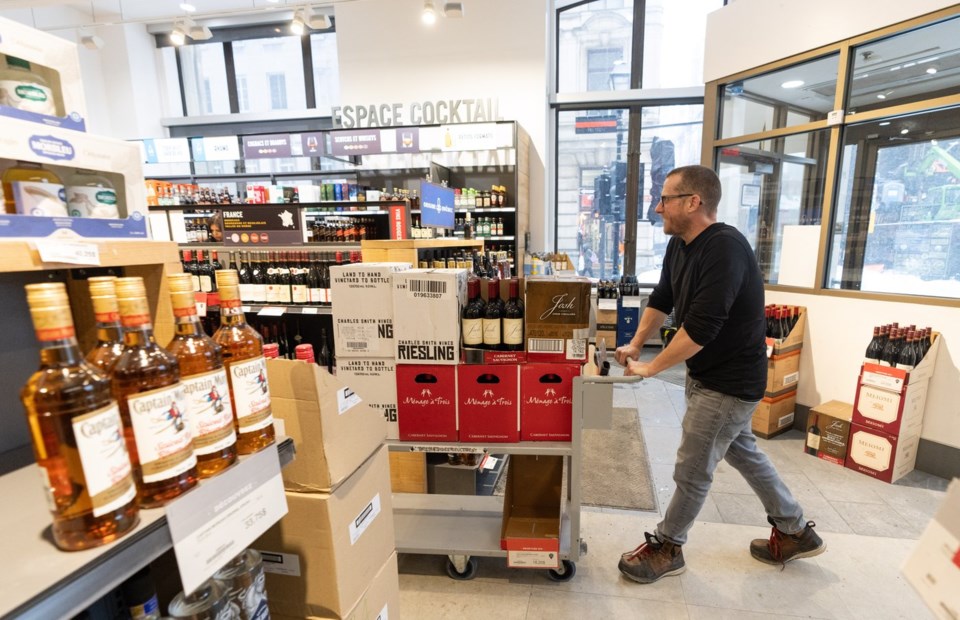MONTREAL — The Quebec liquor board may be forced to destroy $300,000 worth of American alcohol that the province has banned from stores.
The provincial government on March 4 ordered the state-owned corporation to empty shelves of U.S. alcohol in response to tariffs imposed by President Donald Trump.
Since then, U.S. alcohol purchased before the boycott has been kept in storage, but Quebec's liquor board says that unless the government changes its guidelines it will have to destroy some products set to expire. Affected products are mainly rosé and boxed wines, ready-to-drink cocktails, and certain beers and liqueurs not suitable for prolonged storage.
"The scenario surrounding these products has not yet been finalized and the operation is still ongoing," liquor board spokesperson Laurianne Tardif said in a written statement. "Several factors, including the duration of the operation, the number of products involved and future decisions regarding their fate, will have a direct impact on the potential costs."
The $300,000 worth of stock represents only a small portion of the $27 million of American products in storage. The storage itself cost the corporation nearly $500,000 between March 4 and June 21.
In June, liquor board president and CEO Jacques Farcy said the American products had not yet lost their value. "These are not fresh or perishable products," he said at the time. "If things drag on, there may be further discussions."
He indicated it would be up to the Quebec government to decide when the liquor board could resume selling American alcohol.
The office of Finance Minister Éric Girard did not immediately answer a question about whether the government would relax the ban to avoid destroying stock purchased before the boycott. However, a spokesperson noted that the products in question have not yet expired.
In March, several other provinces including Ontario and Alberta also directed their liquor regulators to stop buying American products, while B.C. banned liquor from "red states" that voted for Trump in the 2024 election.
However, Alberta and Saskatchewan have since reversed those decisions and are once again allowing the sale of U.S. alcohol.
Trade measures, including liquor-sales bans and a 25 per cent tariff on U.S. alcohol imports, are being felt south of the border. The American Association of Wine Economists recently reported that in June, the value of U.S. wine exports to Canada had dropped by nearly 97 per cent compared to 2024.
Chris Swonger, president and CEO of the Distilled Spirits Council of the United States, said exports of distilled spirits to Canada are down 65 per cent compared to last year. He said the sales bans have also cost Canadian provincial governments significant revenue.
"Just hearing the news about a province destroying … products that have already been paid for is just really, really unfortunate," he said, adding, "doesn't make a lot of sense" for governments to be "inflicting pain" on themselves.
The Wine Institute, an advocacy group for the California wine industry, said in a statement that the tariff feud has meant a financial and personal loss for U.S. producers. "Our winemakers have spent decades building trusted relationships with Canadian consumers and trade partners and those connections matter," said Honore Comfort, vice-president of international marketing.
"To have them disrupted by a trade dispute that does not involve our wineries is disheartening for all of us."
This report by The Canadian Press was first published Aug. 21, 2025.
Stéphane Rolland and Maura Forrest, The Canadian Press


